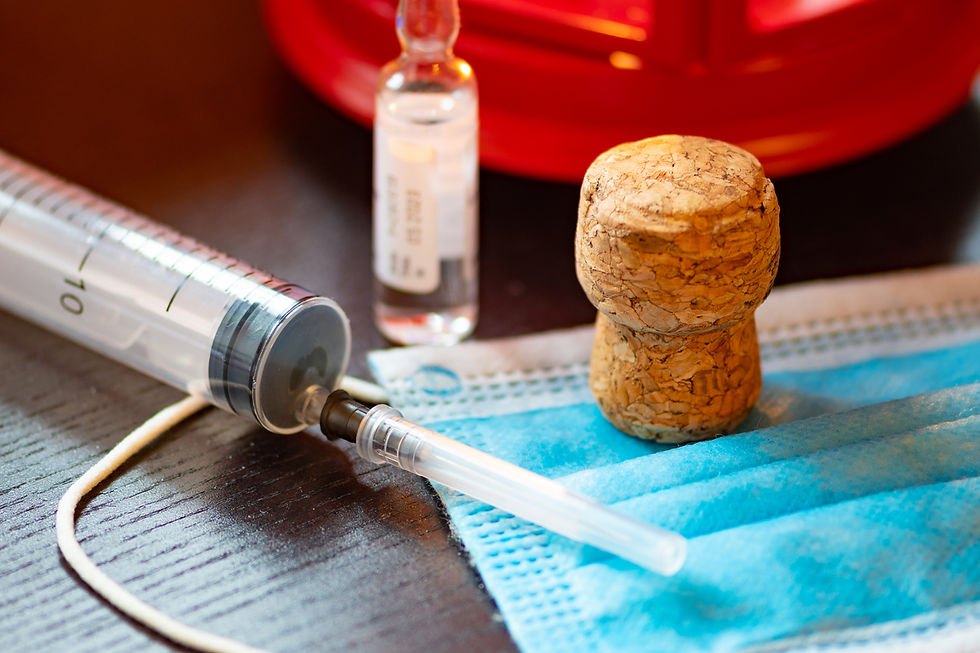Here’s What You Should Know About Alcohol and the COVID Vaccine
- Jeffrey Reynolds
- Jan 9, 2021
- 2 min read

If you’re planning to get vaccinated for COVID-19, it might be a good idea to lay off the booze for a few days before or after each shot. That’s the advice coming from experts worldwide who, like the World Health Organization, have noted that alcohol, especially in large amounts can negatively impact the immune system.
While there’s no evidence that alcohol in any amount directly impacts COVID-19 vaccine efficacy, chronic and heavy alcohol use (defined by the CDC as more than 8 drinks per week for women and 15 drinks per week for men) can damage the immune cells that line the intestines, which serve as the first line of defense against viruses and bacteria.
A 2015 study by University of Maryland researchers found that a single episode of binge drinking – 4 drinks or more in a sitting – depletes the infection-fighting abilities of certain white blood cells in the hours after intoxication. Another UK study – highlighted in a recent BBC documentary, found that three glasses of Prosecco demolished half the body’s white blood cells, including lymphocytes which help attack viruses with antibodies.
Despite skyrocketing alcohol sales during the COVID-19 pandemic, protecting yourself means making sure that your immune system is in optimal shape. That means eating right, getting enough sleep, exercising, and yes, limiting your alcohol intake.
But does that mean you can’t have a glass of wine or two before or after getting the vaccine? It’s a question that’s being debated worldwide.
Russian health official Anna Popova drew ire last month after she recommended that those getting the Sputnik V COVID vaccine in that country avoid alcohol altogether for two weeks prior to getting the first vaccine and for six weeks thereafter to ensure optimal efficacy of the two Sputnik vaccines, which are to be administered 21 days apart. The vaccine’s developer, Alexander Gintsburg pushed back on Twitter suggesting that “One glass of champagne won’t hurt anyone, not even your immune system.” He did go on to say, though, in a subsequent tweet, that reducing your alcohol use can boost immunity and refraining from alcohol for three days before and after each vaccine makes perfect sense, regardless of where you live or which COVID vaccine you’ll be getting. Closer to home, William Moss, executive director of the International Vaccine Access Center at Johns Hopkins University says, “There’s no evidence that, if you have one beer or a glass of wine a couple days after you get your vaccine, that’s going to interfere with your immune response or protection following the vaccine.”
Ok, but if you’re lucky enough to get the vaccine, going a few days without booze doesn’t seem like a huge sacrifice. If it is, maybe that’s a different conversation.




Comments